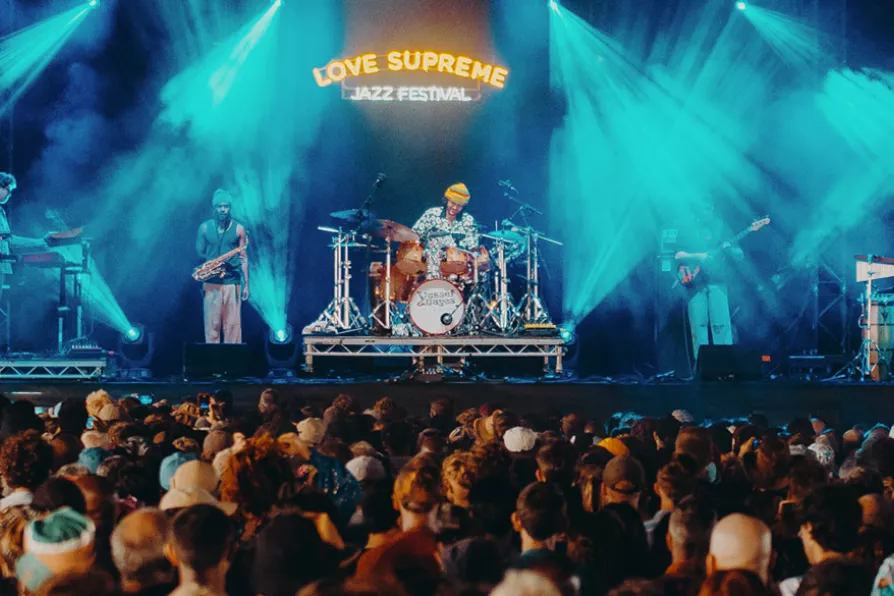MATTHEW HAWKINS contrasts the sinister enchantments of an AI infused interactive exhibition with the intimacies disclosed by two real artists

 VIRTUOSO: Yussef Dayes performs at Love Supreme Jazz festival
[Courtesy of Love Supreme Jazz Festival]
VIRTUOSO: Yussef Dayes performs at Love Supreme Jazz festival
[Courtesy of Love Supreme Jazz Festival]
Love Supreme Festival
Glynd, East Sussex
THE modern music festival can descend into an exercise in highly commercial nostalgia for old rockers and their fans. But some old acts are like rare gems that deserve new audiences.
On the Glynde estate in Sussex, hundreds gathered in fevered excitement in a huge tent as Ethiopian jazz legend Mulatu Astatke in a warm, soft voice introduced his next song, Freedom.
With his international band of top-flight musicians (trumpet, sax, cello, conga player, flute, double bass and drummer), what followed lifted that lucky audience into a state of mesmerised transcendence.

As part of the 2025 London Jazz Festival Rich Mix offered intriguing sessions titled 'Persian Jazz,' CHRIS SEARLE was there

STEVE JOHNSON relishes a celebration of the commonality of folk music and its links with the struggles of working people the world over

MIK SABIERS wallows in a night of political punk and funk that fires both barrels at Trump

STEVE JOHNSON, CHRIS SEARLE and TONY BURKE review new releases from Steve Knightley, Jupiter & Okwess, Jason Palmer, Lisa Knapp and Gerry Driver, Kin'Gongolo Kiniata, Ingrid Laubrock/Tom Rainey, Dan Sealey, Simin Tande, PAZ










